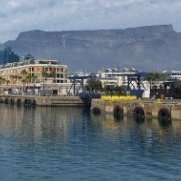Thai legal expert weighs benefits of judiciary handling political crises
-
Recently Browsing 0 members
- No registered users viewing this page.
-
Topics
-
-
Popular Contributors
-
-
Latest posts...
-
5
-
17
Does EMS signed for with Thailand Post also track within the destination country?
I send a package from my country to Korat Used DHL.Was delivered at the door after 2 days. I also send to surin with normal post route.Took 5 days.A tip ..if u send a package/letter to Thailand dont use the adress to the person u send it to Use poste restante so it goes to the post office and the receiver can pick it up there instead of waiting maybe weeks before it arrives to the home adress. -
7
Kasikorn bank joint account
WE left K Bank because they wouldn't allow a joint names ATM card, that was a few years back -
23
Crime Fake Russian Doctor Arrested in Phuket for Illegal Medical Practice
Someone better inform Bob that his sex change Doctor won't be available for any further "treatments" -
5
Accident Supercar Crashes Into Tree on Winding Uttaradit-Nan Border Road
One idiotic car less on the roads. And 2 pedestrians more. -
54
Behind the facade of the Rightwing Moral Crusade
Where do you come up with this rubbish?
-
-
Popular in The Pub





.thumb.jpeg.d2d19a66404642fd9ff62d6262fd153e.jpeg)


Recommended Posts
Create an account or sign in to comment
You need to be a member in order to leave a comment
Create an account
Sign up for a new account in our community. It's easy!
Register a new accountSign in
Already have an account? Sign in here.
Sign In Now